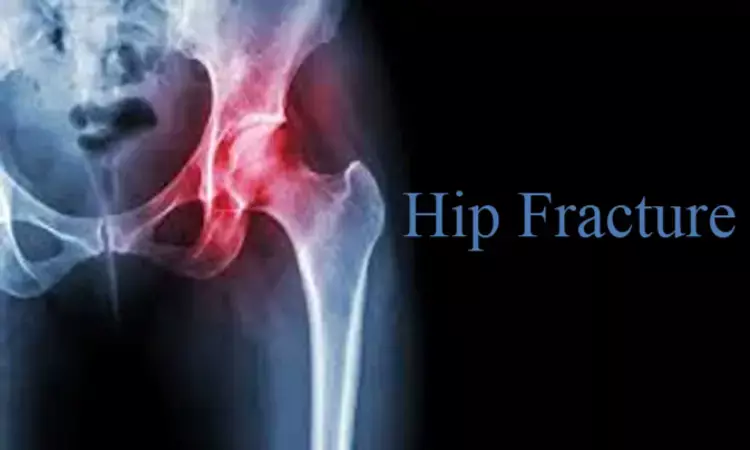- Home
- Medical news & Guidelines
- Anesthesiology
- Cardiology and CTVS
- Critical Care
- Dentistry
- Dermatology
- Diabetes and Endocrinology
- ENT
- Gastroenterology
- Medicine
- Nephrology
- Neurology
- Obstretics-Gynaecology
- Oncology
- Ophthalmology
- Orthopaedics
- Pediatrics-Neonatology
- Psychiatry
- Pulmonology
- Radiology
- Surgery
- Urology
- Laboratory Medicine
- Diet
- Nursing
- Paramedical
- Physiotherapy
- Health news
- Fact Check
- Bone Health Fact Check
- Brain Health Fact Check
- Cancer Related Fact Check
- Child Care Fact Check
- Dental and oral health fact check
- Diabetes and metabolic health fact check
- Diet and Nutrition Fact Check
- Eye and ENT Care Fact Check
- Fitness fact check
- Gut health fact check
- Heart health fact check
- Kidney health fact check
- Medical education fact check
- Men's health fact check
- Respiratory fact check
- Skin and hair care fact check
- Vaccine and Immunization fact check
- Women's health fact check
- AYUSH
- State News
- Andaman and Nicobar Islands
- Andhra Pradesh
- Arunachal Pradesh
- Assam
- Bihar
- Chandigarh
- Chattisgarh
- Dadra and Nagar Haveli
- Daman and Diu
- Delhi
- Goa
- Gujarat
- Haryana
- Himachal Pradesh
- Jammu & Kashmir
- Jharkhand
- Karnataka
- Kerala
- Ladakh
- Lakshadweep
- Madhya Pradesh
- Maharashtra
- Manipur
- Meghalaya
- Mizoram
- Nagaland
- Odisha
- Puducherry
- Punjab
- Rajasthan
- Sikkim
- Tamil Nadu
- Telangana
- Tripura
- Uttar Pradesh
- Uttrakhand
- West Bengal
- Medical Education
- Industry
Use of antiepileptic Drugs increases risk of hip fracture in Alzheimer's Disease: Study

According to a recent study published in the Journal of Clinical Epidemiology, it has been observed that antiepileptic drugs (AED) use is associated with an increased risk of hip fracture in people with Alzheimer´s disease (AD).
Hip fractures are indeed a major health problem in older adults, and strongly affect their health and well-being, substantially increasing morbidity, short-term mortality, and reducing autonomy and quality of life. As a result, health-care costs are also substantially increased.
Hence, Pisa F, Reinold J and associates from the School of Pharmacy, University of Eastern Finland, Kuopio, Finland carried out this study to determine the risk of hip fracture in persons with Alzheimer´s disease (AD) who initiated antiepileptic drugs (AEDs).
This cohort of 70,719 Finnish community dwellers with clinically verified incident AD diagnosis were identified and registered for the study. AEDs were classified as older (valproate, carbamazepine, clonazepam, phenytoin, levetiracetam, primidone) or newer (pregabalin, gabapentin, oxcarbazepine, lamotrigine, topiramate). The authors further matched each user to 2 non-users. Incident hip fractures were identified from the Care register for health care. The inverse probability of treatment weighted hazard ratios (HR), with 95% confidence intervals, using Cox regression was calculated.
The following facts were observed-
- Altogether 5522 incident users were identified and matched to 11,044 non-users (in both groups, women: 65%; median age: 81 years).
- Altogether 53.3% of users initiated with newer AEDs (pregabalin 79.8%, gabapentin 10.2%) while 46.7% initiated with older AEDs (valproate 67.6%, carbamazepine 13.0%).
- Age- and sex-adjusted IR of hip fracture per 100 person-years was 1.8 (95% CI 1.6– 1.9) in non-users and 2.0 (95% CI 1.8– 2.2) in users.
- Increased risk of hip fracture was observed in users (HR 1.17, 95% CI 1.05– 1.30) compared with non-users.
- The risk was higher for short duration of use (< 14 weeks, HR 3.64, 95% CI 2.90– 4.58) than for medium duration (14 to < 64 weeks, HR 1.74, 95% CI 1.48– 2.05) or ≥ 64 weeks' use (HR 1.23, 95% CI 1.08– 1.40), compared to non-users with same follow-up time.
- Older AEDs had HR of 1.46 (1.03– 2.08) compared with newer AEDs.
Hence, the authors concluded that "AED use is associated with an increased risk of hip fracture in people with AD."
These findings prompt careful consideration before prescribing AEDs to persons with AD. Persons with AD treated with antiepileptics should be carefully monitored due to their increased risk of falling and fractures, they further added.
Dr. Nandita Mohan is a practicing pediatric dentist with more than 5 years of clinical work experience. Along with this, she is equally interested in keeping herself up to date about the latest developments in the field of medicine and dentistry which is the driving force for her to be in association with Medical Dialogues. She also has her name attached with many publications; both national and international. She has pursued her BDS from Rajiv Gandhi University of Health Sciences, Bangalore and later went to enter her dream specialty (MDS) in the Department of Pedodontics and Preventive Dentistry from Pt. B.D. Sharma University of Health Sciences. Through all the years of experience, her core interest in learning something new has never stopped. She can be contacted at editorial@medicaldialogues.in. Contact no. 011-43720751
Dr Kamal Kant Kohli-MBBS, DTCD- a chest specialist with more than 30 years of practice and a flair for writing clinical articles, Dr Kamal Kant Kohli joined Medical Dialogues as a Chief Editor of Medical News. Besides writing articles, as an editor, he proofreads and verifies all the medical content published on Medical Dialogues including those coming from journals, studies,medical conferences,guidelines etc. Email: drkohli@medicaldialogues.in. Contact no. 011-43720751


